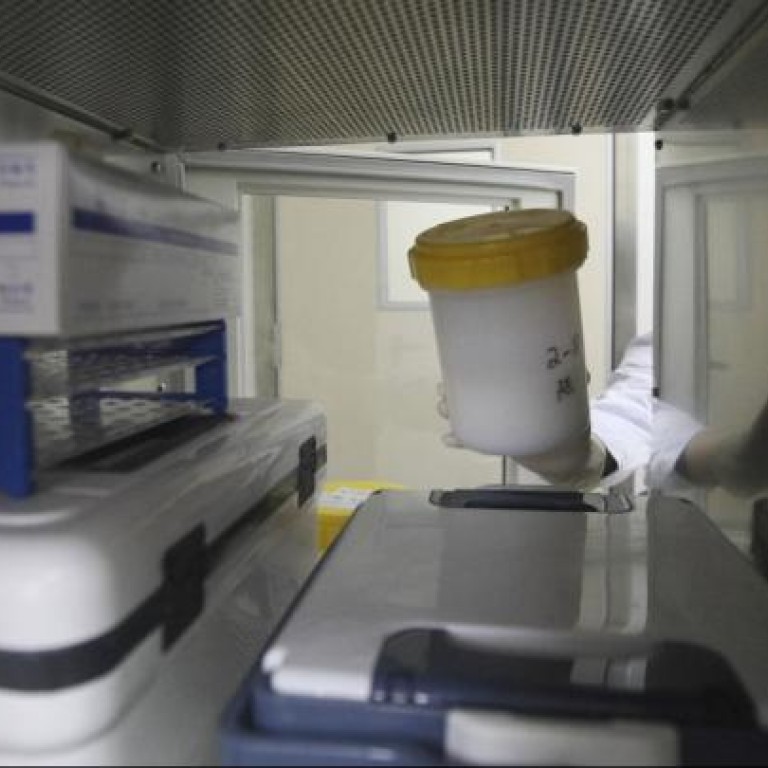
Breakthrough in bird flu investigation with virus found at Shanghai market
Link between human flu and birds found after virus detected in pigeon at Shanghai market
Mainland authorities have made a breakthrough in their investigation of the H7N9 bird flu virus, which has killed two more people, finding it in pigeon samples at a Shanghai market.
Authorities in the city began a cull of poultry following the discovery at the market, Xinhua reported early today.
Leading public health experts warned that more human cases of H7N9 were likely to be detected after health authorities stepped up their monitoring.
The Ministry of Agriculture said yesterday that the virus was found in a sample taken from a pigeon at the Huhuai Agricultural Products Wholesale Market in Shanghai's Songjiang district. The strain was very similar to the strain detected in the 14 human patients infected to date. Five have died.
Professor Lu Hongzhou, a leading public health expert who has helped treat the cases in Shanghai and was one of the drafters of new national H7N9 flu prevention and control guidelines, said the discovery provided a link between the human flu and birds, although there might be other sources of transmission.
A 48-year-old man from Rugao , Jiangsu , who transported chickens and ducks for a living became the fourth person to die from the virus on Wednesday, Shanghai's Commission of Health and Family Planning said yesterday. The man went to a private clinic with a cough and fever on Monday and then sought treatment at Tongji Hospital in Shanghai on Wednesday. He died hours later.
The authorities later confirmed a 52 year-old retired woman died of the virus on Wednesday at Huashan Hospital. They said two other local people, including a four-year-old boy, were confirmed infected with H7N9.
Four people in Shanghai have now died of the bird flu in the past month. The other death was in nearby Zhejiang .
Zhejiang's health department announced the discovery of the province's third H7N9 flu case yesterday - a 64-year-old farmer from Huzhou - bringing the number of people known to have been infected on the mainland to 14. The man showed symptoms on March 29 and was admitted to a hospital two days later.
Lu Hongzhong, the public health expert, warned more cases would emerge in the coming days as surveillance had been stepped up and it was likely some people had been infected but had not shown strong symptoms.
But even with more cases confirmed it was still a sporadic outbreak because no epidemiological link was found and no cluster outbreak, such as in schools, had been detected.
The outbreak has dealt a major blow to Shanghai's poultry market, with dealers saying sales had plummeted.
A six-member team of Hong Kong experts set off on a two-day trip to Shanghai yesterday. Led by the Hospital Authority's chief manager of infection, emergency and contingency, Dr Liu Shao-haei, the team will meet experts in Shanghai to discuss patients' clinical situations and exchange views on treatment methods.
University of Hong Kong microbiologist Professor Yuen Kwok-yung is one of the team members.


